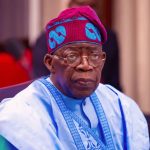Director-General/CEO of the National Council on Climate Change (NCCC), Dr. Nkiruka Chidia-Maduekwe has emphasised that Africa will persist in advocating for changes to the climate finance framework. Maduekwe stated this during an interview with journalists at the Nigerian pavilion at the COP 29 in Baku Azerbaijan. She noted that change for climate change architecture is to prevent Africa from being overwhelmed by additional loans as it works to fulfill its climate change commitments.
“We are being told to have an ambitious Nationally Determined Contributions (NDC) but then where is the finance going to come from? So, in every forum that we speak in, we always highlight the need for blended finance and ensure that there’s a distinction between development finance and climate finance because they lump all these things together, so we’re saying there has to be a difference. That’s number one.
“Number two, what we have seen happen in this COP is an amplified position for methane. The conversation of methane has started, and the push is a lot here in this COP 29. We’ve seen high-level meetings organised by China and the US. We’ve also seen these high-level side events on methane.
“It’s just simply saying we need to take the issue of short pollutants, short-lived pollutants that we also call super pollutants. We need to take it very seriously.
“So not just methane, but carbon, black carbon as well. So, this conversation is at the forefront. And of course, you already know that Nigeria signed an MOU with China,” she said.
Maduekwe, who stated that Nigeria already has a nuclear regulatory agency to ensure the safety of Nigerians, emphasised the potential of nuclear energy in Africa’s transition to clean energy.
“When you talk about diversifying the energy mix, nuclear energy is a low-hanging fruit. And it’s clean energy and it’s also going to take us out of the carbon energy space. So, it’s one of the options, alternatives we have in our energy mix.
“We’re talking about decarbonisation. You need to have the buy-in of the oil and gas. Because whether we like it or not, the development we’ve had so far is largely as a result of fossil fuel.
“And so how else can you help them make that transition without having them as part of the conversation? So, I would say that it’s important to have all stakeholders on board to have them better understand what needs to be done in order for us to have a clean, just and equitable transition,” she said.












